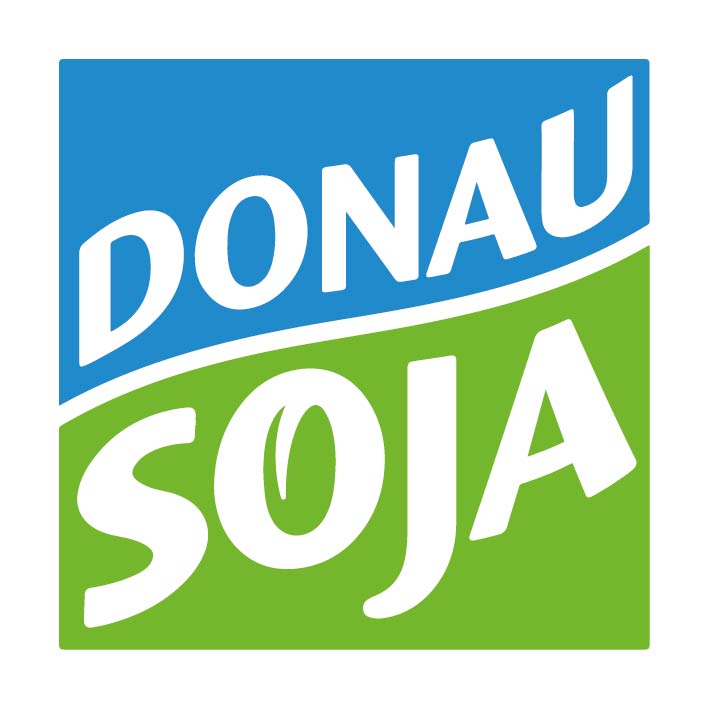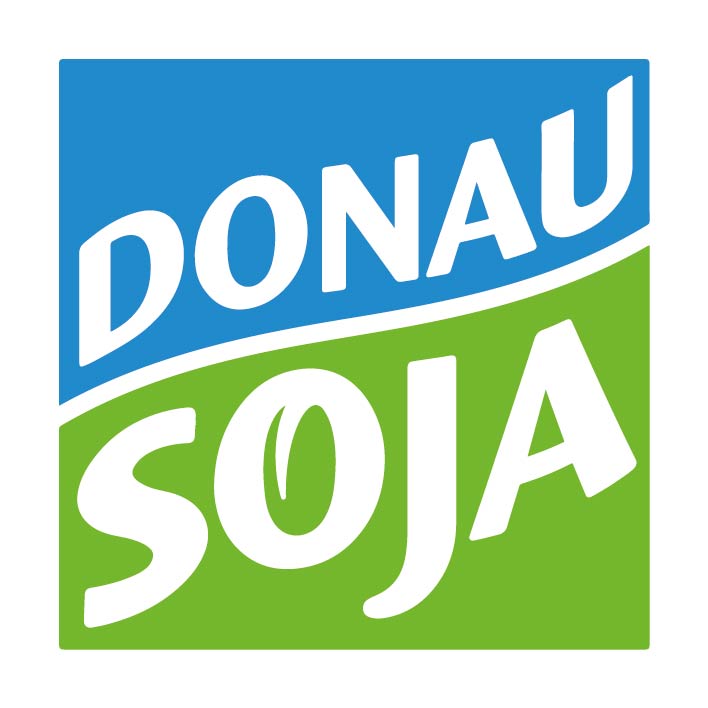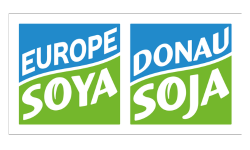On-farm, regional and organic feed are a contribution to climate mitigation
Schwäbisch Hall (Southern Germany) – By using Donau Soja / Europe Soyacertified animal feed, “Schwäbisch-Hällisches Qualitätsschweinefleisch g.g.A.” (Swabian-Hall pork) avoids 31% of the average CO2 emissions. In the case of the organic version (with, among other things, the farm’s own protein feed), the reduction is as much as 49%. This is shown by a recent study of the Research Institute of Organic Agriculture (FiBL) Austria, which Donau Soja presented today in the southern German region of Baden-Württemberg together with the Managing Director of the farmers’ association “Bäuerliche Erzeugergemeinschaft Schwäbisch Hall (BESH)” Rudolf Bühler. “It makes a significant difference how we keep and feed our livestock,” says Donau Soja chairman Matthias Krön. “The Bäuerliche Erzeugergemeinschaft Schwäbisch Hall is leading the way with Swabian-Hall swines. When regional, GMO-free Donau Soja is used, regional farms, the environment and the climate benefit.”
Swabian-Hall pork with Donau Soja / Europe Soya feed causes 3.3 kg of CO2 per kg of pork, while a typical production in Southern Germany with soya from overseas causes 4.7 kg of CO2 per kg of meat. This means a reduction of 1.4 kg CO2 per kg of pork, a minus of 31% of the climate-effective emissions. In the case of organic Swabian-Hall pork, emissions can even be reduced by a further 0.9 kg of CO2, to minus 49% of the emissions of average production.
“The Bäuerliche Erzeugergemeinschaft Schwäbisch Hall has been a member of the Donau Soja organisation since it was founded and its members only use Donau Soja / Europe Soya. Here it is ensured that the soybeans are sustainably sourced from regional /European origin and not from climate-damaging cultivation from tropical regions,” emphasises Rudolf Bühler, Managing Director of the farmers’ association. “Furthermore, it is ensured here that the soybeans are GMO-free – as are all other feedstuffs used by the farms of the Bäuerliche Erzeugergemeinschaft.”
Since 2016, the pigs of the Bäuerliche Erzeugergemeinschaft Schwäbisch Hall have been fed mainly with Donau Soja / Europe Soya-certified soya. The organic Swabian-Hall swines eat the farm’s own/regional feed such as barley, triticale, peas, wheat and soya beans or soya cake, instead of soya meal.
The production of animal food causes considerable amounts of greenhouse gas emissions. In the case of pork, this is mainly due to the production of feed, especially soya from overseas: the EU is heavily dependent on soya imports and obtains about 40% of its demand from Brazil. Thereby, in addition to animal feed, we also import the environmental damage associated with it, such as forest destruction for soya cultivation. Between 2000 and 2016, an estimated 5.3 million hectares were deforested for soya cultivation in the Amazon and the Cerrado. This area corresponds to just under a third of the total arable land in Germany. According to the Sustainable Trade Initiative (IDH), only 25% of the EU’s soya demand comes from certified deforestation-free production.
“These figures confirm the enormous potential for climate mitigation in the pig sector,” says Matthias Krön from Donau Soja. “It is time for the German pork industry to follow the example of the Bäuerliche Erzeugergemeinschaft Schwäbisch Hall. By doing so, domestic consumers could more easily make their contribution to climate mitigation in their daily purchase.”
You can find the FiBL study here: www.donausoja.eu/factsheets/
Further information and photos at www.donausoja.eu/press/


